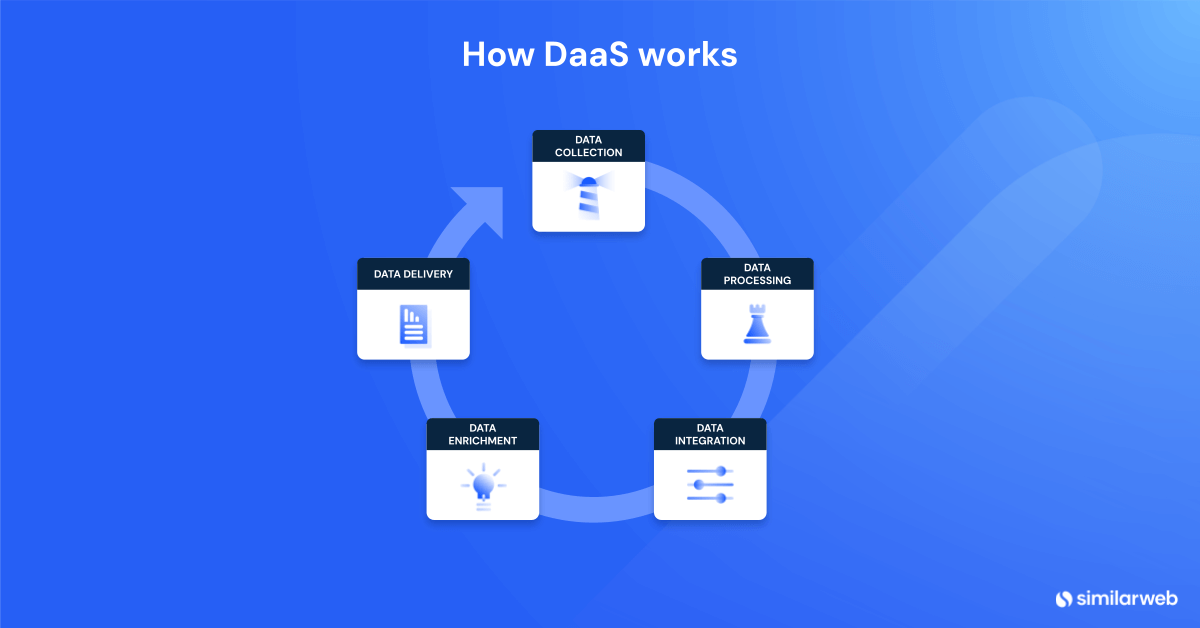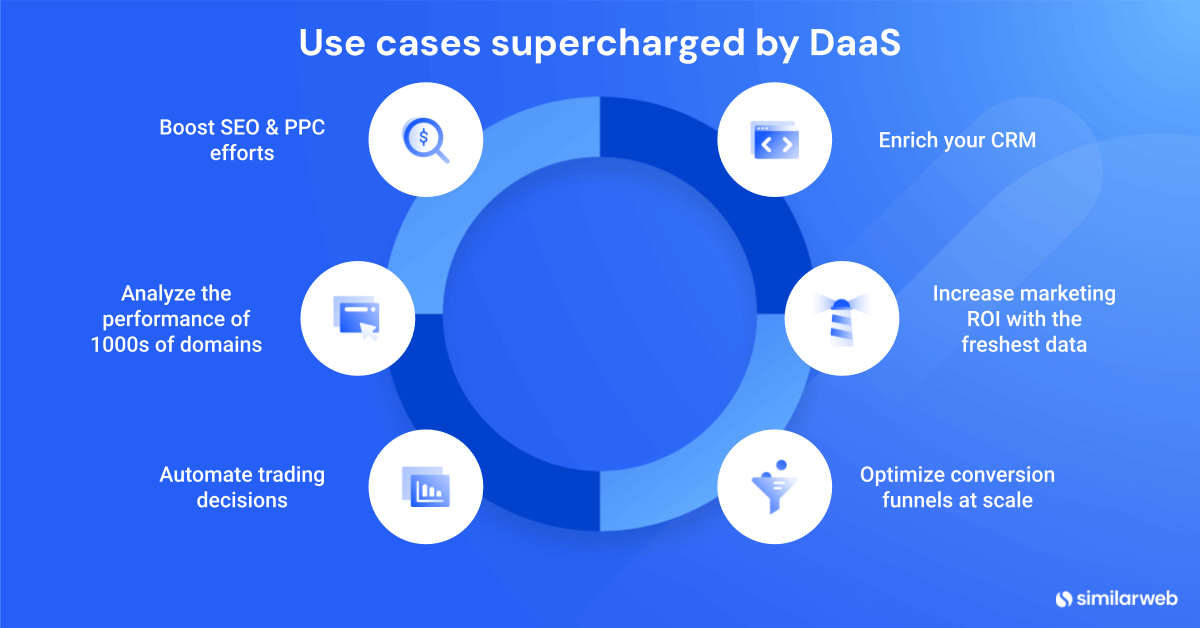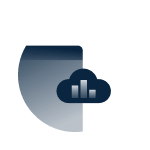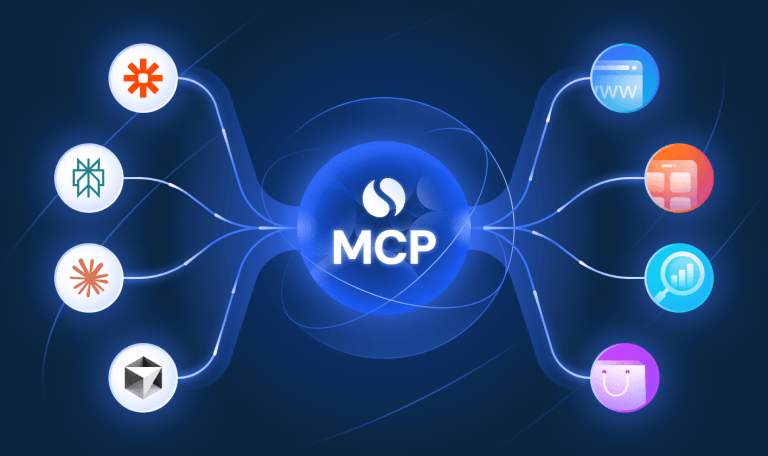What is Data-as-a-Service (DaaS), and Why Do You Need It?

Accessing vast amounts of data can be as simple as turning on the tap, so to speak. Organizations and companies often struggle not just with collecting data but with making it actionable and accessible. Data-as-a-Service (DaaS) revolutionizes how businesses handle, analyze, and utilize their data. This model simplifies data management and makes critical information readily available and useful for decision-making.
The increasing need to have a competitive edge is just one of the many reasons why businesses are doubling down on DaaS. In fact, its market size is estimated to surpass $51 billion by 2029, with a compound annual growth rate (CAGR) of 20%, as reported by Yahoo Finance.
What is Data-as-a-Service (DaaS)?
Data-as-a-Service (DaaS) is a cloud-based data management model that allows businesses to access, integrate, and analyze data on demand. Unlike traditional systems that require significant on-premises infrastructure, DaaS delivers data through the cloud, making it accessible anywhere, anytime. This model supports various data types and keeps the data accurate and high-quality.
How does this differ from Software as a Service (SaaS)? SaaS delivers software applications over the internet, eliminating the need for users to install and maintain software on their local devices. SaaS applications are hosted on a remote server and accessed via a web browser, providing convenience and reducing the complexity associated with software deployment and updates.
How DaaS works
DaaS simplifies data access and management through a series of systematic steps. Here’s how it works:
- Data collection: Gather data from multiple sources, including databases, cloud services, and external feeds
- Data processing: Transform and clean the collected data to check accuracy and relevance
- Data integration: Combine data from various sources into a unified format using a virtualization layer
- Data enrichment: Add context and detail to the data, enhancing its value and utility
- Data delivery: Provide real-time access to the processed data through APIs, dashboards, and other interfaces
Data-as-a-Service (DaaS) benefits
Accessing data on demand via the cloud streamlines operations and helps in making critical decisions. Here are the key benefits of DaaS:
Cost efficiency
One of the primary benefits of DaaS is cost efficiency. Traditional data management systems require substantial investments in hardware, software, and personnel. DaaS eliminates these expenses by providing a cloud-based solution where companies only pay for the data services they use, leading to significant cost savings.
Real-time access
Another crucial advantage is real-time access to data. With DaaS, businesses can access up-to-date information from any location at any time. This immediacy allows for faster actions and more agile responses to market changes.
Scalability
Scalability is a key feature of DaaS. As a business grows, its data needs to evolve. DaaS platforms can easily scale up or down based on demand. It offers flexibility and prevents the limitations associated with a fixed infrastructure.
Data quality
High data quality and accuracy are essential for making wise decisions. DaaS platforms continuously clean, enrich, and validate data so that it remains accurate and relevant. This continuous improvement process significantly reduces errors.
Flexibility
Another significant benefit is flexibility in data management and delivery. DaaS supports various data types and formats, making it easier for businesses to integrate and utilize diverse datasets. Such versatility allows companies to customize their data solutions to meet specific needs and objectives.
Data-as-a-Service (DaaS) examples
Various organizations are adopting DaaS to streamline their data management processes and improve their decision-making capabilities. Below are detailed examples of how different companies are utilizing DaaS:
Urban mapping
Urban Mapping provides geographical data services that clients can embed into their applications. By using DaaS, Urban Mapping delivers up-to-date maps and geographic information supporting urban planning, real estate development, and local government projects. This service allows clients to access detailed geographic data without investing in extensive mapping infrastructure.
Xignite
Xignite supplies financial data to clients through a DaaS model. The company offers a wide range of financial information, including the following:
- Stock prices
- Market indices
- Economic indicators
By delivering data through APIs, Xignite allows financial institutions, fintech companies, and investment firms to integrate real-time financial data into their platforms. This access to accurate and timely data helps clients make informed investment decisions and develop financial products.
Streetlight Data
Streetlight Data uses DaaS to track city traffic flows and provide insights for urban planning. By collecting GPS and cellular data points from anonymized phone records and government sources, this traffic data analytics company creates detailed models of pedestrian, bike, and vehicle movements. Cities and transportation agencies can then use these insights to optimize traffic management, plan new infrastructure projects, and improve public transportation services. This data-driven method improves urban mobility and supports efficient city planning.
Similarweb
Similarweb uses Data-as-a-Service to offer real-time, comprehensive online traffic and engagement data at scale. This data is delivered via API, Data Feed services, Data integrations, and customized reports built in the Data Exporter. Customers can make informed, strategic business decisions with timely insights and easy access to 30+ billion data points.
Data-as-a-Service (DaaS) use cases
DaaS has many uses that help organizations use data effectively for various purposes. Here are some examples:
Enrich your CRM
DaaS can greatly improve your Customer Relationship Management (CRM) system as it provides richer data. Businesses can better understand customer behavior, preferences, and demographics with the help of data from outside sources. This richer information can be utilized to create more tailored marketing campaigns, improve customer service, and look for upselling and cross-selling opportunities.
Product Integration
Leveraging DaaS to enhance your products can greatly improve their value with up-to-the-minute data and insights. For example, Similarweb offers easy-to-use APIs and integrations that require little technical effort. This will allow you to get the latest online traffic and engagement data to streamline setup and deployment processes, build stickier products that adapt to changing market needs, and deliver the industry’s freshest data to keep your customers current.
Competitive analysis
DaaS helps with thorough competitive analysis thanks to its detailed datasets about competitor activities, market positions, and performance metrics. Companies can study this data to learn about the strengths and weaknesses of their competition, spot market trends, and adjust their strategies. This competitive intelligence is a great way to stay ahead in the market and make smart business decisions.
Market analysis
Access to large datasets from DaaS aids in making detailed market analyses. This can be used by companies to study market trends, customer behavior, and competitive dynamics. This information aids businesses in making smart decisions about what products to develop, what marketing strategies to implement, and what new markets are worth exploring. Customer insights may be used by marketing teams to create focused campaigns, while financial analysts can utilize this data to understand market changes and predict future trends.
Optimize conversion funnels
With DaaS, conversion funnels can be improved through detailed data analysis. When businesses gain access to real-time data, user behavior at each stage of the funnel can be precisely monitored. This helps identify drop-off points and understand what affects conversions so that targeted actions can be taken to improve the user experience. This ultimately contributes to increasing conversion rates.
Data-as-a-Service (DaaS) challenges
While Data-as-a-Service (DaaS) provides many advantages, it also comes with challenges that organizations must address. Recognizing these challenges is crucial for effectively using this technology.
Compatibility
Integrating DaaS with existing systems can be complex. Different platforms and technologies might not always seamlessly work together and this may lead to potential compatibility issues. Organizations need to carefully evaluate their current infrastructure and choose DaaS providers that offer flexible integration options.
Scalability
Scalability is a critical issue when processing large amounts of data through DaaS. As data volumes grow, managing and processing these increasingly large datasets efficiently becomes a significant challenge. Insufficient scalability can result in slow performance and increased processing times, which can hinder real-time data analysis and timely decision-making. Companies may struggle to keep up with the demands, leading to potential bottlenecks and decreased operational efficiency.
Latency and Performance
Latency and performance are critical considerations when processing large amounts of data DaaS. Minimizing delays in data retrieval and processing is essential to ensure that insights are timely and actionable. High latency can significantly impact the effectiveness of data analysis, as delays in obtaining and processing data can prevent organizations from responding swiftly to emerging trends or issues. This can be particularly detrimental in fast-paced industries where real-time decision-making is crucial.
Data governance
Managing data governance effectively across both cloud and on-premises environments can be a significant challenge. Organizations must establish clear policies and procedures for data access, usage, and quality. Regular monitoring and updates are required to maintain data integrity and compliance with governance standards.
The future of DaaS
Data-as-a-Service (DaaS) is set to play an increasingly vital role in business operations and strategy. As the demand for real-time, high-quality data continues to grow, several key trends and advancements are expected to shape its future:
Advanced security measures
With the rising concern over data breaches and cyber threats, the future of DaaS will be heavily focused on advanced security measures. Providers will invest in cutting-edge technologies such as AI-driven security protocols, advanced encryption techniques, and multi-layered authentication processes to safeguard data.
Improved data integration
Seamless data integration from various sources will become increasingly important. Future DaaS platforms will optimize their integration capabilities, so businesses can easily combine data from multiple cloud services, on-premises systems, and third-party sources.
AI and machine learning integration
The incorporation of AI and machine learning into DaaS platforms will change the way businesses analyze and utilize data. AI-driven insights and predictive analytics will provide more accurate forecasts and identify patterns that were previously difficult to detect.
Personalized data services
As businesses seek more customized solutions, providers will offer personalized data services tailored to specific industry needs. This customization will include:
- Specialized datasets
- Bespoke analytics tools
- Industry-specific insights
This will give companies a competitive edge because they can easily access data that is most relevant to their operations.
Why use Similarweb as a data service?
Choosing the right DaaS provider is crucial for handling, analyzing, and using data effectively. Similarweb offers unique capabilities and a complete Data-as-a-Service solution to explore vast data sets with unprecedented speed, elevate software capabilities, and harness the power of 30+ billion data points.
API
Our APIs offer complete flexibility and customization for accessing and analyzing Similarweb Digital Data for real-time insights or bulk data.
Data Feeds
There are hundreds of pre-built, custom data sets to enhance your data models and advance analytics that can be seamlessly integrated into a cloud environment.
Integrations
Connect Similarweb Digital Data to tools like Power BI, Google, Looker Studio, and Tableau to get the most out of the data when creating data visualizations, data modeling, and more.
Data Exporter
Access Similarweb Digital Data at scale to generate tailored, insightful reports in just a few clicks and share them with the entire team. No technical expertise or coding knowledge is needed.
Expert support and service
Similarweb’s customer support team is available to help businesses make the most of their data. They can guide you through the entire process and address any challenges, from onboarding to ongoing support.
Transform your data management strategy
Data-as-a-Service (DaaS) revolutionizes how businesses access, manage, and utilize data. By providing a flexible, scalable, and cost-effective solution, DaaS allows organizations to make data-driven decisions with greater ease and efficiency. It addresses common challenges such as data quality, security, and real-time access and offers significant benefits across various industries, from finance and healthcare to retail and logistics. As the market for DaaS continues to grow, its importance in business strategy and operations will only increase.
With Similarweb’s comprehensive data solutions, businesses can leverage high-quality, accurate, and enriched data to gain a competitive edge and drive growth. By integrating DaaS into your business model, you can transform your data into a valuable asset, make better decisions, and foster innovation. Adopt DaaS today and unlock the full potential of your data to achieve your business goals.
FAQs
What metrics can Similarweb’s DaaS provide for app performance?
Similarweb’s Data-as-a-Service (DaaS) offers comprehensive metrics for app performance, including user engagement, retention rates, downloads, and in-app behavior. By accessing real-time data through APIs and data feeds, businesses can analyze user interactions and optimize their app’s functionality and user experience.
How can Similarweb’s DaaS help with keyword analysis?
Similarweb’s DaaS enhances keyword analysis by providing detailed data on search trends, keyword performance, and competitive keyword strategies. This information allows businesses to refine their SEO and PPC campaigns, target the most effective keywords, and capitalize on emerging trends, ensuring better visibility and higher conversion rates.
What is Technographics data from Similarweb’s DaaS?
Technographics datasets from Similarweb’s DaaS includes detailed insights into the technologies and software tools used by companies. This data helps businesses understand the technology stack of their competitors or potential clients, allowing for more targeted marketing, sales strategies, and better-informed decisions on technology adoption and integration.
How can Similarweb’s DaaS support investment decisions?
Similarweb’s DaaS supports investment decisions by providing real-time, high-quality data on market trends, company performance, and competitive analysis. Investors can access detailed metrics and insights to identify potential opportunities, assess market dynamics, and make informed decisions that reduce risk and maximize returns.
What information does Similarweb’s DaaS provide for Amazon market analysis?
For Amazon market analysis, Similarweb’s DaaS delivers detailed data on product performance, competitor sales, market share, and consumer behavior. This information helps businesses optimize their product listings, identify trends, and understand competitive dynamics, enabling them to enhance their strategies and increase their market presence on Amazon.
Maximize your growth potential
Harness the power of data with Similarweb’s APIs to drive smarter business decisions













